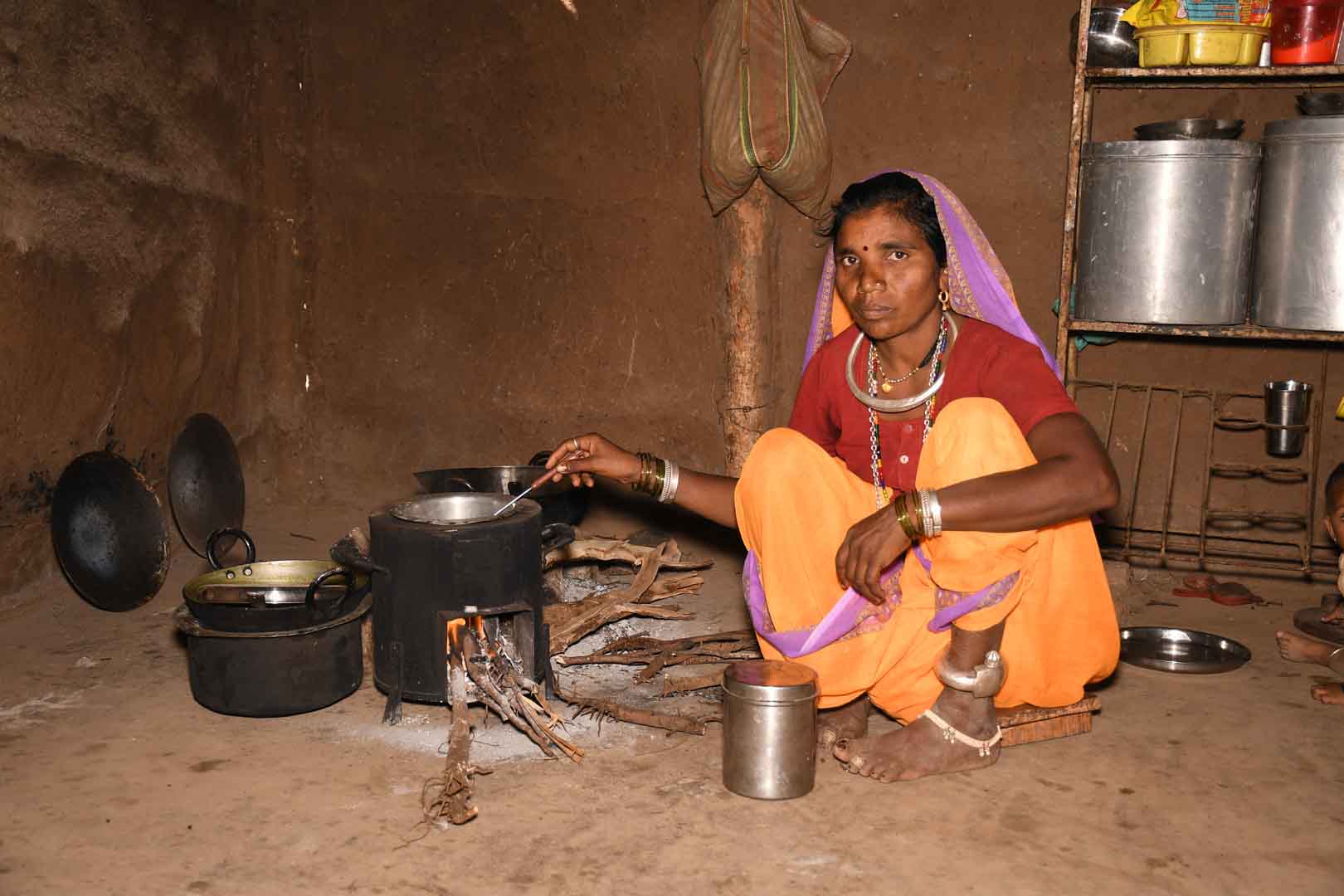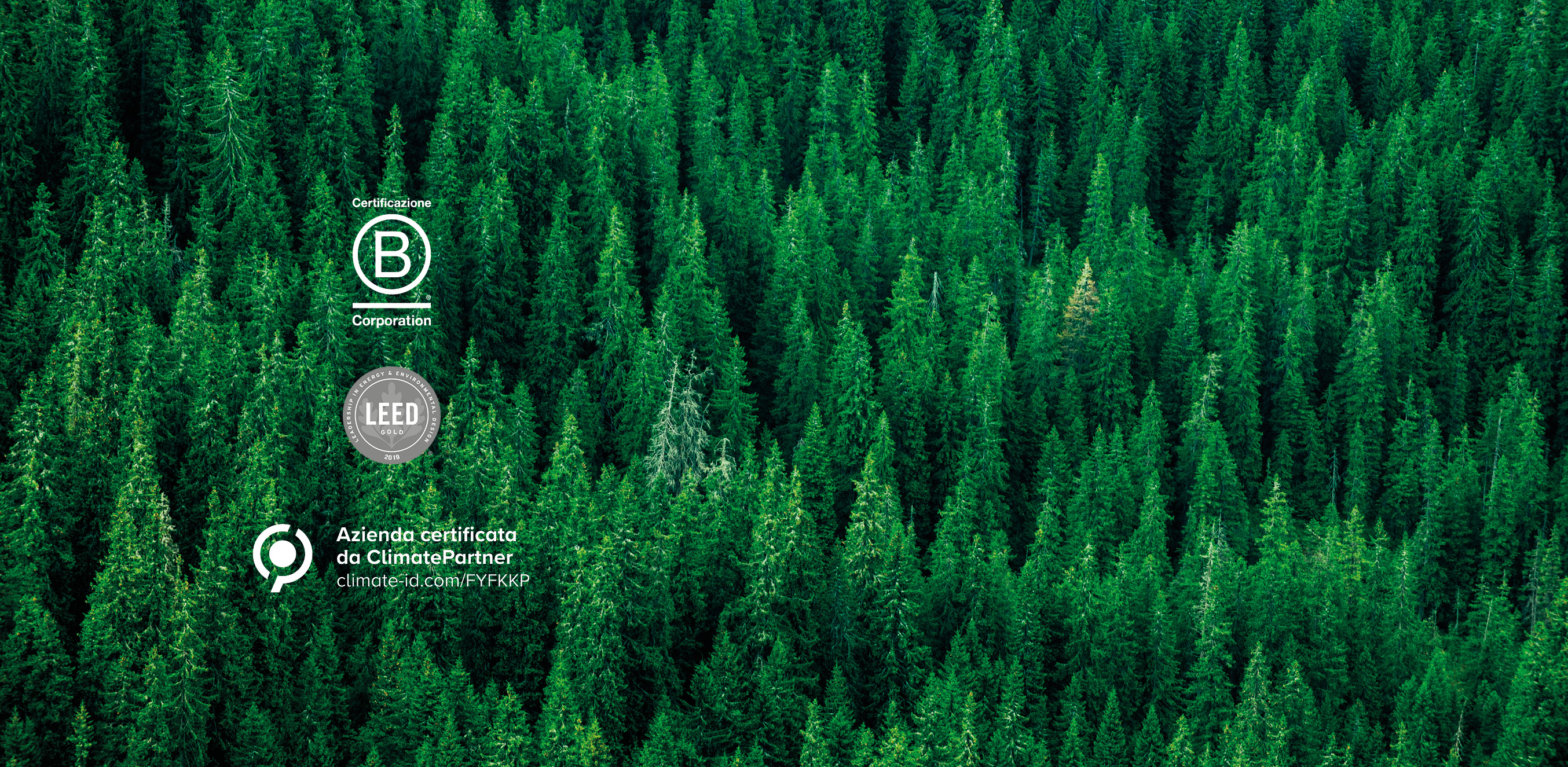-

-
Thanks to our collaboration with ClimatePartner, we have analyzed our organizational carbon footprint in detail. The CLIMATE PARTNER CERTIFIED label certifies transparency across our entire strategy, according to ClimatePartner's five phases of climate action.
We calculated our carbon footprint by considering emissions from Scope 1 and 2, and partially Scope 3, corporate activities: from gas and electricity consumption, to the purchase of materials for our operations and their disposal, to, for example, the carbon dioxide produced by our employees on their commute. We have set ourselves targets to reduce our emissions and implemented concrete measures to achieve them: energy efficiency improvements at our LEED Gold-certified facility, increased use of energy from renewable sources, more sustainable packaging choices, and optimization of production processes.Only residual emissions—those we cannot currently avoid—are offset through certified environmental projects, selected for their positive impact on climate, biodiversity, and local development.
WE SUPPORT THE COOKSTOVES PROJECT IN INDIA -
 Offsetting is an important step towards global climate protection. Greenhouse gases, such as CO2, spread uniformly throughout the atmosphere; therefore, their concentration is uniform across the Earth, making it irrelevant where emissions originate on the planet. However, locally unavoidable emissions can be offset elsewhere through climate protection projects. For this reason, we have committed to supporting climate protection projects that cover our remaining emissions until 2027.
Offsetting is an important step towards global climate protection. Greenhouse gases, such as CO2, spread uniformly throughout the atmosphere; therefore, their concentration is uniform across the Earth, making it irrelevant where emissions originate on the planet. However, locally unavoidable emissions can be offset elsewhere through climate protection projects. For this reason, we have committed to supporting climate protection projects that cover our remaining emissions until 2027.
The compensation project supported is the same as last year and more information can be found here:
Learn about the Improved Cookstoves project: In the villages of Maharashtra, a state in western India, 85% of families still rely on traditional stoves. This cooking method requires a lot of wood and leads to high exposure to indoor smoke, which poses a health risk, especially to women and children. The goal of this project is to promote cleaner cooking practices and improve health by providing improved stoves to indigenous families and families living below the poverty line in Maharashtra. The portable stoves are made of cast iron and require less firewood, reducing indoor air pollution and CO2 emissions. Thousands of families receive improved stoves thanks to the project's activities. Declining demand for firewood helps minimize deforestation and has a positive impact on the area's biodiversity. The project aims to contribute to these United Nations Sustainable Development Goals (SDGs). -

We have always believed in it
"We have always believed in it, from the beginning. It's not just about making an excellent product; if you realize that your work can create something good for the world, for society, for people, then there can be growth and continuous evolution." Andrea Filippi
Environmental commitment

Since 2022, Pasticceria Filippi has undertaken a voluntary program to measure, reduce, and offset its climate-altering emissions. This choice is consistent with our Benefit identity and B Corp certification, and translates into concrete actions every day to limit our environmental impact and contribute to protecting the planet. Our approach goes beyond reducing and offsetting emissions; it is based on the premise that true sustainability is built through transparency, accountability, and continuous improvement.






